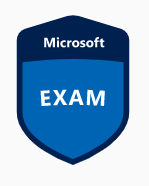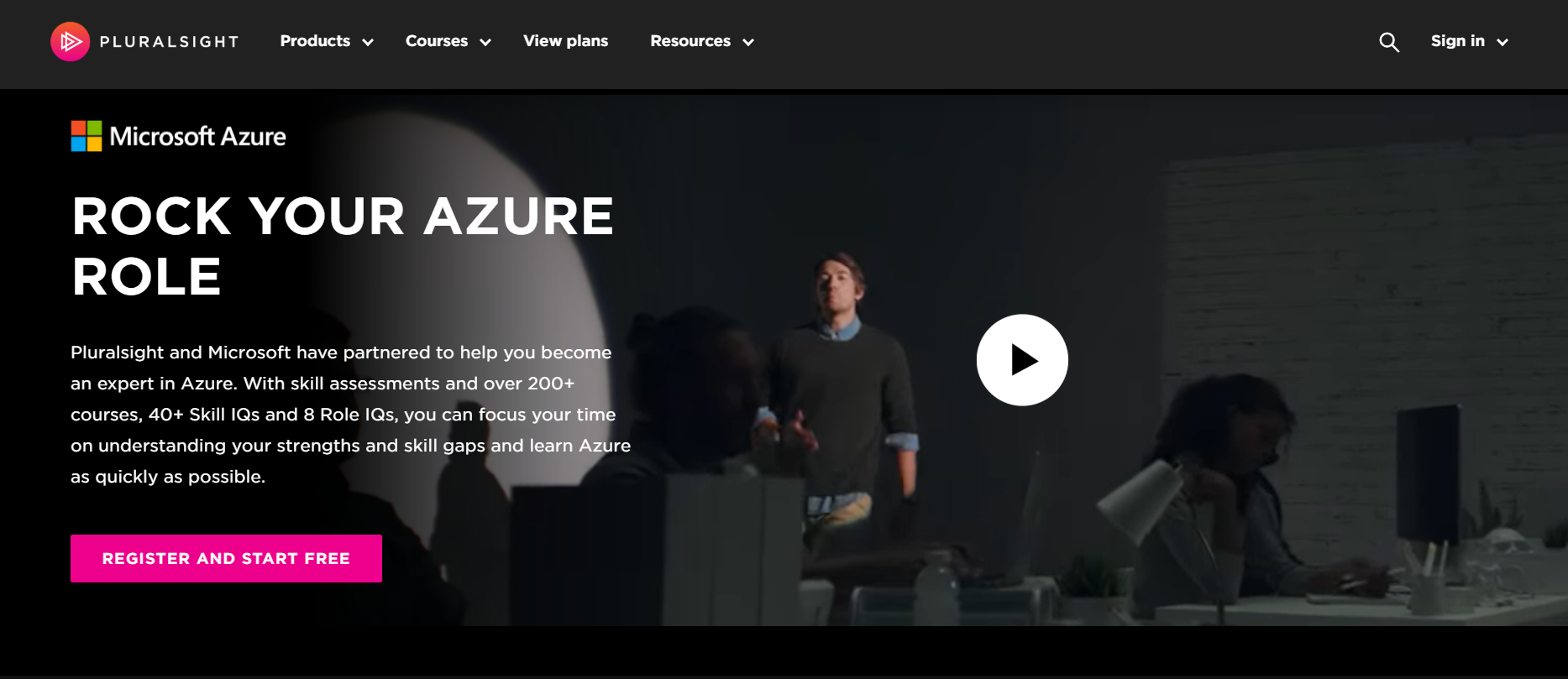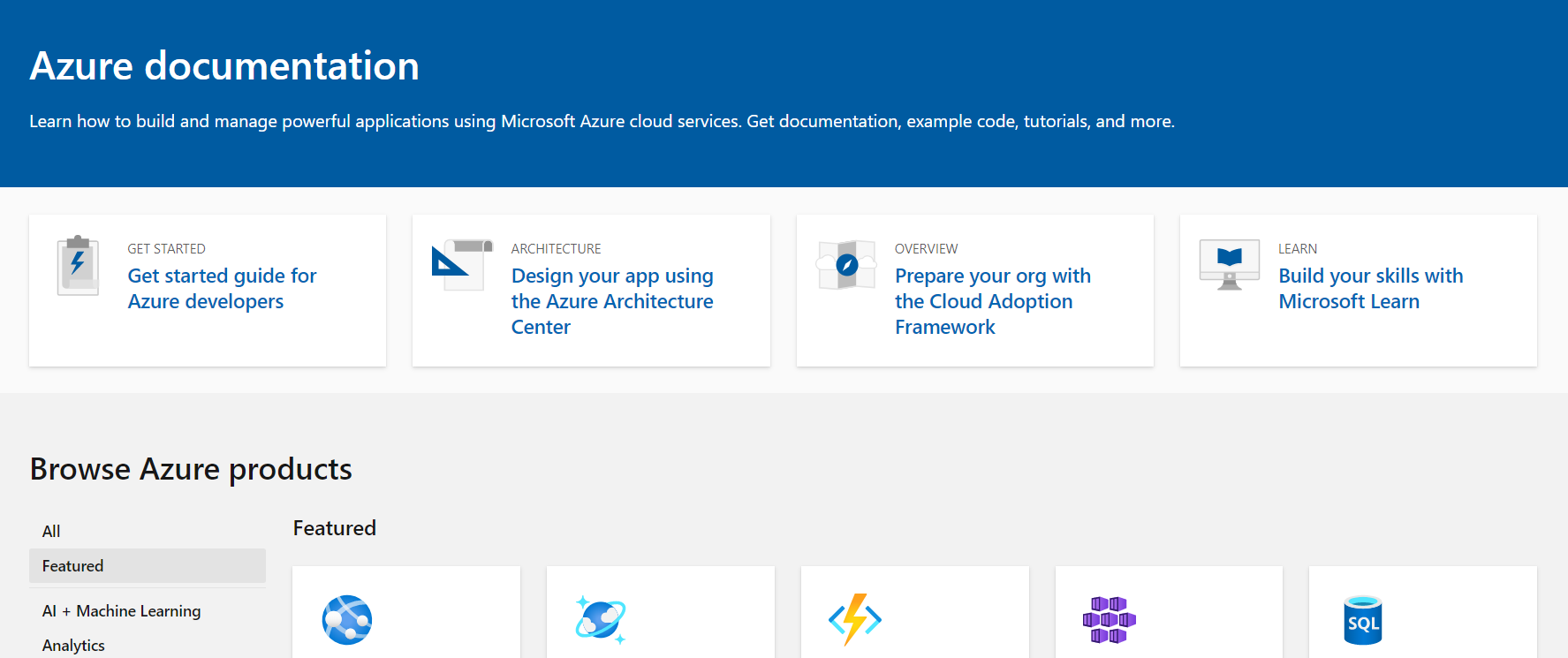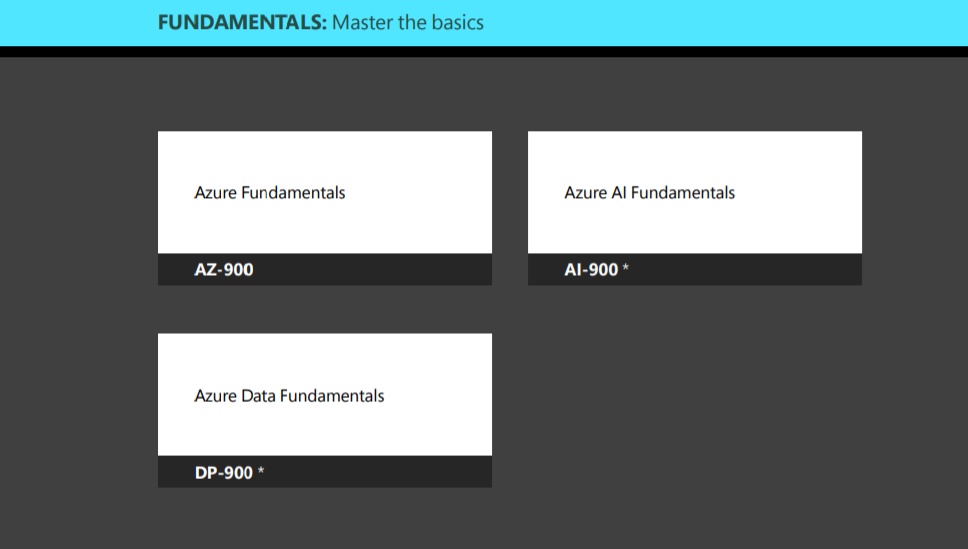Cloud Certifications: Azure Data Fundamentals
Aug 5, 2020 • 7 Minute Read
Introduction
This guide provides information and resources to prepare you for the Azure Data Fundamentals" (DP-900) certification. It also gives you some tips and recommendations based on the experiences of other data architects who have approved and are certified in Azure.
Who This Certification is For
This certification is designed for data and big data engineers who have knowledge of database types, concepts behind big data (such as Hadoop and Spark), and unstructured data management.
This certification is recommended for people who are starting out in the world of Azure certifications and want to validate their knowledge in cloud data platforms. No experience is required, but knowledge of databases, Big Data, and Data Lakes is required.
What this Certification is For
This certification is useful for many reasons, but the most important are:
- It demonstrates your knowledge of the types of storage technologies (structured and unstructured) and when to use each.
- It measures your level of use of Azure services and best practices for each one.
- It validates you in the market with this new Azure certification for new job opportunities.
- It allows you to be part of the global network of Microsoft certified people and access more development opportunities.
Which Exams are Applicable?
To achieve this certification, you must pass one exam:
- DP-900 (Azure Data Fundamentals): This test measures your competencies in understanding databases (relational and non-relational, or NoSQL), file storage (Storage Account and Data Lake) and the use of Big Data processing engines (HDInsight, Databricks and Synapse Analytics ). You must also understand how these technologies connect to each other in 100% cloud environments or in a hybrid way (with on-premise data).
Your preparation for the DP-900 exam should look like this:
- Study the general concepts of databases and Big Data technologies.
- Get an overview of all Azure technologies (understand what each does, not a full detail).
- Practice with these technologies from the Azure portal (you must have your Azure account enabled).
- Install and practice creating the same resources and technologies using Powershell.
- Install and practice creating the same resources and technologies using Azure CLI. You can also use it from the Azure portal.
You must know how to differentiate relational databases very well and understand the main NoSQL databases and when to use them, as well as the best Big Data processing platform according to each context (for example, real-time processing).
Remember that the key is in the details, both in study and in practice.
Prerequisites
There are no prerequisites for this exam, but having experience in Azure will help you tackle this certification, including not only the use of data platforms, but also how they are created in Azure.
Finally, in addition to how to implement each service, make sure you also understand the best practices for these services (use virtual networks, backups, databases pools, service plans).
Skills Measured
The exam measures four competencies:
- Describe core data concepts (15-20%)
- Describe how to work with relational data on Azure (25-30%)
- Describe how to work with non-relational data on Azure (25-30%)
- Describe an analytics workload on Azure (25-30%)
For all of these skills, you must be able to explain and answer how to do it through the Azure portal or one of its code options (Azure CLI, Powershell and ARM Templates).
Technologies
You must also understand the following technologies (it is not required, but is ideal to have some experience in these topics):
- Azure Storage (Table, Blob and File storage)
- Azure Data Lake
- Azure SQL Database (Single and Elastic Pool)
- Azure SQL Managed Instance
- Azure SQL Server Virtual Machine
- Azure CosmosDB
- Azure HDInsight
- Azure Databricks
- Azure Database for PostgreSQL
- Azure Database for MariaDB
- Azure Database for MySQL
- Azure Data Factory
- Azure Synapse Analytics
- PowerBI
For each of these technologies, in addition to knowing and experimenting with them, you should be prepared to explain which contexts to use them in and iwhich not to use them in.
Although the exam does not delve much into technical details, it is recommended to review the documentation of each technology to become familiar with each concept of each service.
Other Resources
Pluralsight Courses
You can enhance and accelerate your learning with the range of Pluralsight courses on each Azure technology:
- https://www.pluralsight.com/partners/microsoft/azure
Azure Docs
You can complement the Pluralsight courses with the official Azure documentation:
- https://docs.microsoft.com/en-us/azure/
Azure Learning
You can also complement the other courses with Microsoft Learning Paths:
- https://docs.microsoft.com/en-us/learn/certifications/exams/dp-900?tab=tab-learning-paths
Compensation and Employment Outlook
The benefits of obtaining this certification include:
- Being able to work on Big Data projects in your organization
- Industry recognition as a person who has passed a Microsoft certification
- Being part of the network of people certified in Microsoft technologies (with access to benefits)
- Being able to apply to other jobs as a data engineer with cloud platforms
- Having opportunities that scale globally, because this certification is valid for any part of the world and will allow you to extend your career beyond your current country
According to Neuvoo, the average annual salary of a Azure data engineer reaches US$150,000—or more if you have additional experience and certifications (like this one).
The Certification Path
This is one of the initial Azure certifications, making it a good foundation to later continue with other certifications, such as Azure Data Engineer Associate or Azure Database Administrator Associate.
Conclusion
Finally, some advice:
- The easiest way to learn these technologies is practice, so I invite you to practice while watching the Pluralsight and Microsoft courses.
- Although it is not necessary to know all the details of each technology, it will help you when you have to apply your new certification in your work environment.
I wish you a lot of success on your way to the Azure Data Fundamentals certification!




